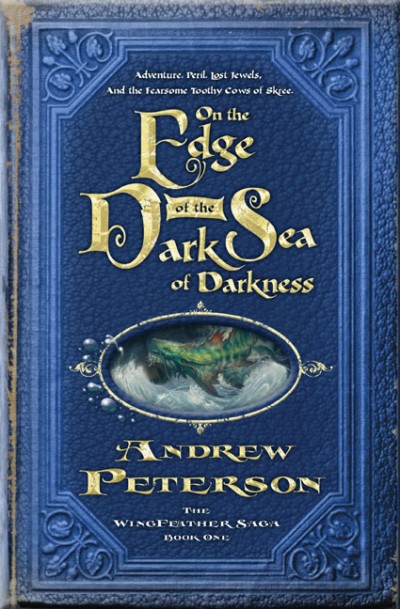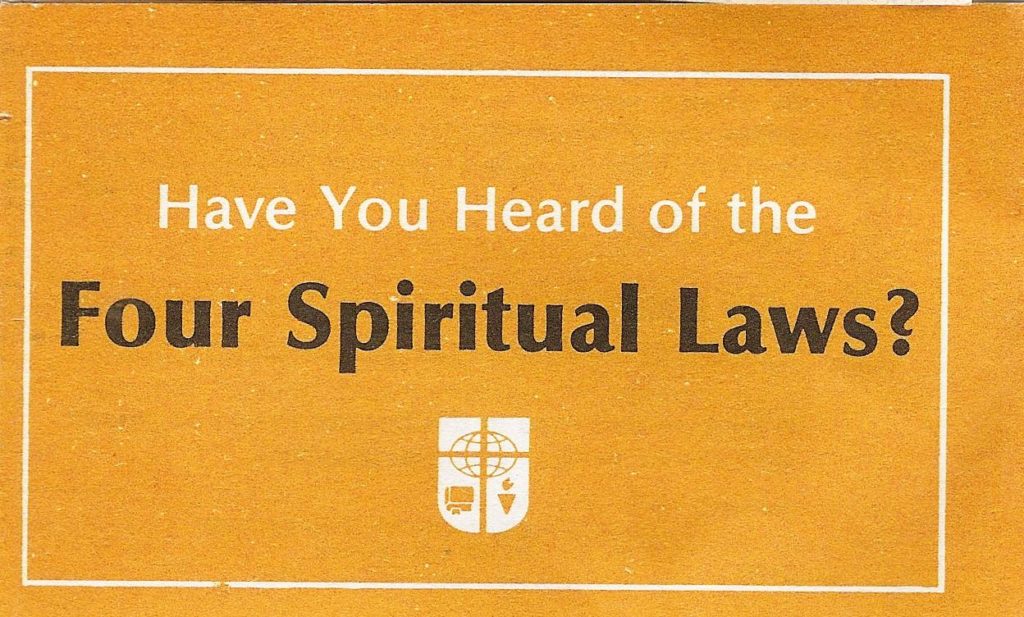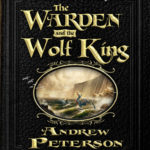Why We Don’t Need Christian Fantasy
We’ve explored answers to the question Why Do We Need Christian Fantasy? Now let’s look at reasons why we don’t need Christian fantasy—that is, any fantastical story (fantasy, science fiction, supernatural/horror) by Christians, for Christians.1
Why we don’t need Christian fantasy
1. So we have a Clean/Wholesome Alternative.
Someone shared the SpecFaith article Why Isn’t There More Christian Fantasy? with a positive comment. That person linked to a site that promises to provide “clean” fiction.
Here is a common belief among Christians: that our faith in Jesus should lead us only to make “clean,” “wholesome,” or “family friendly” stories. But the Bible does not advocate such standards—certainly not for Christian grown-ups! Instead Scripture advocates honesty about reality. In fact, we must feel “unclean” before Jesus cleans us. Uncleanness does not come from stories and songs, but from the state of our own hearts.2
Thus, we should not promote Christian fantasy (or Christian anything) only because it is “clean” or “wholesome”—as if any human cultural work could be free of sinful intent or content.
Furthermore, I skimmed the site—and I have not read the books, and for all I know they might be brilliant. But I could not help noticing a bevy of foxy women glaring out at me from the book covers. Their clothing was rebelliously modest. But their eyes were saying, “Hey, big boy, come check out my hot story.” Mind you, I don’t necessarily object. But I also cannot see how these images meet some universal definition of “clean” or “wholesome”!
 2. So we can Send A Message.
2. So we can Send A Message.
Christians often advocate for Christian stories and songs with the phrase “send a message.”
Add the word “to” and you find out what this means. Send a message to … Hollywood. Send a message to … the “liberal” media.3 Send a message to … that other real or imaginary villain … that we want more of this kind of story!4
The Bible is all about a message. But Christians should not attempt to pry the “message” out of the Bible, cram it into a movie or novel, and then expect the movie or novel to go places the Bible cannot. God insists his breathed-out word is a two-edged sword. It’s sharper than any human story. It pierces atoms.5 It always works.
Stories are more like “play” swords. We certainly need these, for God himself commanded people to make culture,6 and this includes stories. But they’re not the Bible.
So let’s not try to make stories do a job that God assigned to Scripture alone, any more than we would make Bible teaching (like sermons or nonfiction) do a job that we should do in human storytelling. Each “thing” can reference the other, but they have separate functions in human life! Let Bible teaching be Bible teaching, and let stories be stories.
 3. So we have stories for the children.
3. So we have stories for the children.
A Christian author/blogger recommended Andrew Peterson’s fantasy novel On the Edge of the Dark Sea of Darkness. “A good one for the kids,” he said.
Indeed yes. But this fantastical novel is also great for the grown-ups!
Some Christians assume fantasy is primarily for children. That’s a myth we must put away. It’s a myth that assumes Christian grown-ups are only concerned with “adult,” “practical” things such as careers and family, or spiritual tasks such as prayer and Bible reading. But these things are valuable for people of all ages because they point to Someone beyond themselves—to our fantastical God. Fantastical stories have value for the same reason.
4. So we can evangelize/reach out/witness.
Supporters of “clean” or shallow Christian fiction often argue we need these stories to evangelize the lost. But critics of Christian fiction often say the same thing. They only believe The Lost need better stories that include swearing, violence, and all the rest.
Here’s the first problem: In either case, we make up an imaginary group called “the lost.” Then we argue for better stories for them, who aren’t actually in the room at the time.

Perhaps a new title, “The Four [Bleeping] Spiritual Laws,” would increase distribution.
Here’s the second problem: We presume “evangelism” is the chief justification for stories.
But it’s not. Evangelism is not a Christian’s “chief end,” or highest purpose. Evangelism is Jesus’s command and it’s extremely important! But it matters because He wants us to proclaim His gospel that will repair humans from the inside out. That way we can return to our actual chief end: to glorify God, intentionally reflecting Him in everything that we do.
As I’m fond of saying, that is the reason we should have Christian-made fantastical stories (or any kind of stories). Stories don’t clean up our hearts; only Jesus does that. Stories don’t Send a Message; only the Bible does that. Stories are not just for the children. Stories are not useful only for evangelism. For all these purposes, stories can certainly help! But their “chief end,” or highest purpose, is to help us obey God’s “cultural mandate” so we can reflect His image and worship Him forever.
- This also applies to Christian-shared fiction in general, as well as Christian music and all cultural products. ↩
- Mark 7. ↩
- We must stop using the term “liberal.” A better and more respectful, yet fiercely honest term, is “progressivist.” Progressivism is the fastest-growing and arguably now the most powerful religion in Western nations. ↩
- This statement goes “meta” when it effectively becomes: Send a message to Hollywood/the media that we want more stories about sending messages to Hollywood/the media. ↩
- Hebrews 4:12. ↩
- Genesis 1:28. ↩








































For me, the best reason to have Christian fiction is so I don’t have to read things that offend my religious beliefs. I strive to make my fiction fit a Christian world view–that Christ is the son of God and was resurrected after dying for my sins. Anything that says or implies otherwise (like saying Christ had a wife and kids) doesn’t strike me as Christian. I also don’t want to see or read a bunch of fornication in my fiction. Tantalize me with a good story, not forbidden fruit.
Hmm. If I had a magic wand and could rid the earth of “clean” evangelical stories/songs, I would not do it. But I would rid us of the notion that we must stick only with someone’s definition of “clean.” I would also challenge the notion that–as I mentioned above–the “dirtiness” or “cleanness” originates from a story or anything else outside the human heart. That is simply contrary to biblical truth as Jesus taught.
However, I can certainly understand wanting to avoid personal temptation. Moreover, notions about Jesus having a wife and kids are not at all Christian. But then, neither are the “clean stories are always better for you” notions. So I would like to challenge all of these notions as unbiblical and unhelpful for growth in faith.
Stephen, as I have howled before, you are so on point about the attitude that “this stuff is fine for kids but not adults.” Let me howl just a little bit more, so much of the anti-fantastical fiction bias in Christian circles or the relegation of it to children (but when I became an ADULT I did away with childish things!) is born out of personality and personal prejudice. I’ll go to my grave howling that. You might even hear way down deep somewhere by my tombstone inscribed with I Jn 4:1, (my “life verse”) an incessant, disquieting droning. Some people just flat-out do not LIKE or care for fantastical fiction, and that’s fine. But it’s wrong to impose that on the rest of us who do. Some say, “I just don’t like this stuff.” And that’s fine. To each his or her own. But what’s not fine is looking down one’s nose at what one doesn’t like and imposing that on everyone else. “It doesn’t appeal to me, therefore it should appeal to no one.” Which misses what these stories and genres are really all about. You are SO RIGHT about the end of all stories is to glorify God. Does “clean” fiction do that? Of course it does. But the same can be — and should be — must be — said about fantastical fiction tales written by believers in the Master of all stories, Jesus Christ. These attitudes must change. Thank you for being courageous enough to help achieve it.
Stephen, another good article.
One of my frustrations is readers and writers alike who confuse Christian fiction, of any genre, with “clean fiction.” I can guarantee, if we’re talking about following external rules, there are other cults and religions who would believe fiction should be “clean,” and their definition of the word would probably be more conservative than the average conservative Christian. Clean simply is a way to measure a moral standard and has little to say about Christianity.
We, who believe all have sinned and come short of the glory of God, have every inclination to show people of all walks of life coming to Christ, not just those who have lived or are living morally pure lives.
Depravity is not pretty. And the salvation of the vilest sinner is a testimony to God’s greatness. To tell that story isn’t going to be particularly “clean.”
Christians also struggle, and telling that story isn’t pretty (see Romans 7).
In truth, Christian fiction isn’t a devotional. Rather, the inspiration comes from the showing that fiction does, not the telling. When we read in the Bible that we are to love our neighbor as ourselves, Jesus illustrates that with a story about a Samaritan who loved a stranger in a way that a priest and a Levite didn’t. It is powerful because it shows what love looks like.
We aren’t writing inspired fiction, to be sure, but we can also show the truth God has revealed by crafting stories that are truthful in their take away. In the process, we may show the equivalent of a leprous Naaman serving an idolatrous king.
Becky
Well said. Very well said.
Hearty “amen” to all of this. Thank you, Stephen. These conversations are so needed in order to train up the thinking of the Body of Christ on this whole issue. I imagine there will be those who will never waver from their stipulations about “clean” and “evangelism” and “message”, etc but I suspect there are a lot more who just haven’t thought that deeply about this and need to have a second look. And I agree with HG, there are those who just don’t “like” fantasy/sci-fi. Fine. Just don’t relegate us all to the backwater just because you prefer to read Amish romance. But the bottom line in the publishing industry is always money, unfortunately. So our challenge as writers and consumers of this genre is to strive to create and promote excellence, and then we’ll just have to let the chips fall where they may.
Actually, most non-Christians don’t like Christian fiction because it’s bad fiction: Exhibit A: http://www.patheos.com/blogs/lovejoyfeminism/2016/06/lets-talk-christian-fiction.html. Also: http://www.patheos.com/blogs/rolltodisbelieve/2016/06/03/christians-and-the-law-of-conservation-of-worship/
Christian fiction should be inspired by following biblical accounts: no cursing, no nudity but alluding to situations. Violence, dirt, poverty should be allowed because God wrote the bible to relate to us. He’s drawn us to him and we should do the same for our readers. It’s the relationship you build that can affect change. It’s why Harry Potter is great, Narnia is so real and Tolkien has so many followers. Their fantasy worlds were relatable, the characters were real and the protagonist became like family or ourselves. It’s the Katniss Everdeens and Divergent Fours, who are broken and still overcome all odds.
HI Adrea! I agree with all the above except for “no cursing.” Seeing or hearing a “curse word” in a story is not the same as saying a curse word yourself, with anger or blasphemy in one’s heart. I would certainly agree that other things should be allowed, even encouraged, because fiction is a God-given means of engaging our world, and our world includes these things. Our world also includes nudity, that is true. This can be depicted in fiction (as it is depicted in the Bible, though post-Fall, I believe, always to illustrate shame). However, nudity cannot be depicted in a Christian-made visual story, because visual nudity is only possible by actual nudity–as opposed to violence or swearing or other sins, which can be acted and not actually done.